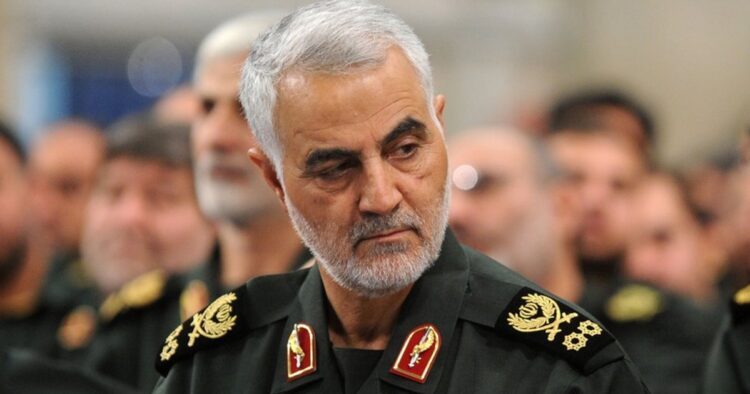In a recent airstrike on the Iranian consulate building in Damascus, Syria, conducted by Israeli forces, seven officers of the Iranian Revolutionary Guards Corps (IRGC) lost their lives. Among the casualties were Brig-Gen Mohammad Reza Zahedi, a senior commander of the elite Quds Force, and his deputy, Brig-Gen Mohammad Hadi Haji-Rahimi.
Brig-Gen Mohammad Reza Zahedi, a close associate of the late Qassem Soleimani, former commander-in-chief of the Quds Force, played a significant role in supporting Hezbollah in Lebanon. He was appointed as the head of the Quds Force’s Lebanon Corps in 1998, where he provided technical and military training to Hezbollah militants.
This is the first photo of General Haji Rahimi, a deputy of Quds Force general Zahedi, both of whom were killed in the Israeli airstrike in Damascus on Monday.
In the photo, Haji Rahimi (right) is pictured with Hassan Irlou, a senior IRGC operator who spent years on secret… https://t.co/LLgWW0AC7c pic.twitter.com/eNEZ4aQkSO— Iran International English (@IranIntl_En) April 1, 2024
The Quds Force, a specialized unit within the IRGC, focuses on unconventional warfare and extraterritorial operations, including supporting proxy groups and conducting intelligence activities abroad. Zahedi was instrumental in leading these proxy groups, particularly in Lebanon and Syria.
Zahedi’s death in the Israeli strike marks the first time a senior member of the Iranian government has been killed on Syrian soil. He was known for his close ties to the Syrian government, particularly to President Bashar al-Assad, whom he supported in quelling dissent and suppressing anti-government uprisings.
Born in Isfahan in the 1960s, Zahedi joined the IRGC shortly after the Islamic Revolution. He served in various capacities, including leading the IRGC’s Air Force and Ground Force, gaining military expertise during the Iran-Iraq war.
Zahedi’s contribution to Hezbollah and the Syrian government was significant, as highlighted by Hezbollah’s statement condemning his death. Despite his demise, Hezbollah emphasized that “liquidating the leaders cannot stop the roaring tide of the people’s resistance,” signaling Zahedi’s influence in bolstering the organization’s attacks on Israel.
Throughout his 44 years of service in the IRGC, Zahedi faced international sanctions, including being listed on the US secondary sanctions list and targeted by UN, Australian, Canadian, and UK sanctions.
The Israeli strike that resulted in Zahedi’s death underscores the ongoing tensions between Israel and Iran, particularly in Syria, where both countries have been engaged in a proxy conflict for years.

















Comments